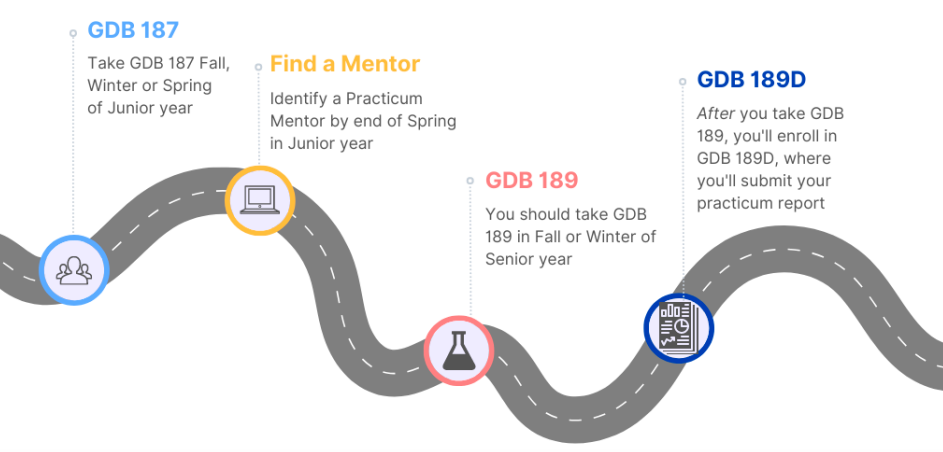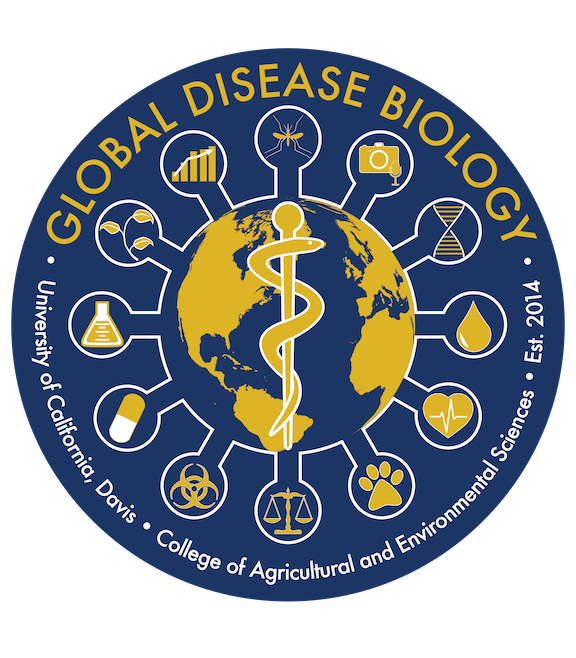Global Disease Biology Major Advising
Requirements for a Bachelor of Science (B.S.) in Global Disease Biology
The GDB degree requirement includes 64-66 units of Preparatory Subject Matter, 44-47 units of Depth Subject Matter, and at least 25 units of Restricted Electives for a minimum total of 133-138 units, as shown on our GDB Major Requirements Sheet.
GDB major requirements cover the majority of standard prerequisites for many health profession schools (e.g., medical school, veterinary medicine, physician assistants, nursing, dental school, physical therapy, clinical lab sciences), but additional requirements may exist. We recommend that students wanting to follow these career paths plan accordingly, check with individual schools, and consult campus resources such as Health Professions Advising (HPA).
Students transferring from a community college, state college, or another university are encouraged to email GDB Advising (gdb-advise@ucdavis.edu) with questions about if and how their UC-transferable units might waive one or more GDB course requirements. You can also view GDB transfer requirements and articulations on ASSIST.org.
Students interested in changing their major to GDB can find detailed instructions for this process on the Prospective Students webpage. Students interested in completing a GDB minor can review GDB minor requirements and instructions for how to to declare a GDB minor here.
Preparatory Subject Matter (64-66 units)
*BIS 002ABC will only continue to be offered every quarter during the 2025-2026 Academic year. Then, BIO 001, 001L, 002, 002L and 003 will be offered each quarter starting in 2026. **For courses that list BIS 2ABC as a prerequisite, but you are taking the BIO series, please reach out to the professor of the course and the corresponding department to see if the BIO series would be an appropriate substitute, and if so inquire if you should submit a prerequisite petition to register for that course. Depth Subject Matter (44-47 units)
|
|---|
Restricted Electives (Minimum 25 Units)
These are typically upper division courses that are identified by the student with the help of their faculty research mentor or practicum mentor and with approval from GDB Advising. Restricted Electives offer the student an opportunity to specialize and to personalize their degree. Students will submit an RE approval form during GDB 187, but students may submit updated forms with changes to gdb-advise@ucdavis.edu at any time. Please review the updated Guide to Restricted Electives for more details.
The GDB Practicum Project
You can find instructions for how to register for GDB 189 and 189D on pages 6 and 7 of the Guide to the GDB Practicum.

The GDB major requires a senior research project (GDB 189) that involves 1-2 quarters of independent study/research under the direct guidance of a mentor. Projects typically are completed on campus but may be off campus with a non-UC Davis mentor. Students with a non-UC Davis mentor must also have an on-campus faculty member as a co-mentor/GDB 189 Instructor of Record. Students enroll in GDB 187 in their Junior year to learn how the practicum works, how to identify a research project, and how to begin their research.
Projects must explore a critical issue in health, wellness, and/or global disease as related to plant, animal, human, or environmental health, or any combination of the aforementioned.
- Lab-based research
- Field-based research
- Meta-analysis (analysis of data sets)
- Literature review paper
If you have any questions about whether or not your research topic or interest(s) meet practicum requirements, please reach out to GDB Advising at gdb-advise@ucdavis.edu or Lead Faculty Advisor, Professor Johan Leveau (jleveau@ucdavis.edu)
Please review the Guide to the GDB Practicum for more details, including how to find a mentor and how to register for GDB 189 and GDB 189D. You can listen to first-hand experiences from GDB students who already have completed their senior research project in our podcast series, Practicum Pods.
